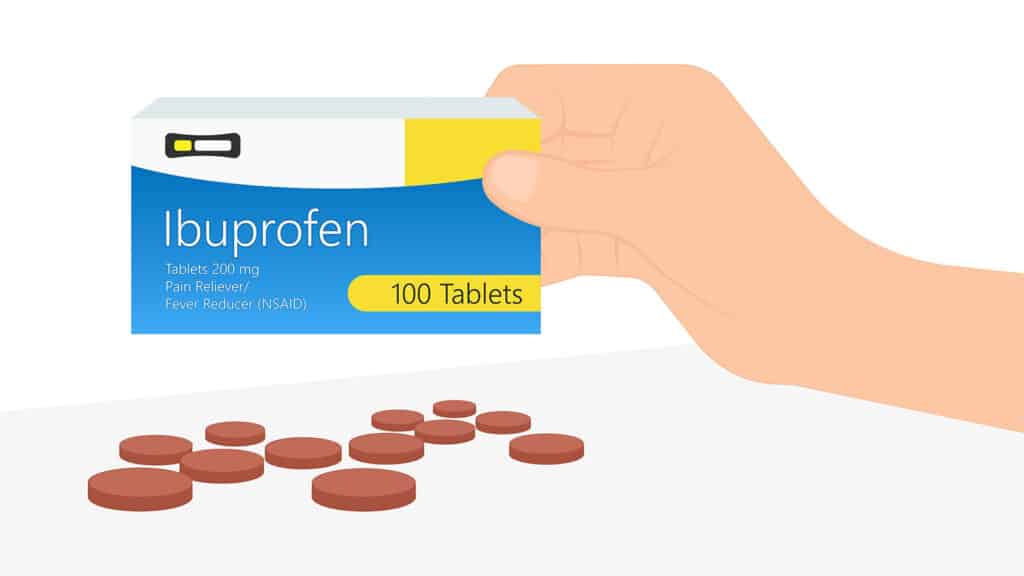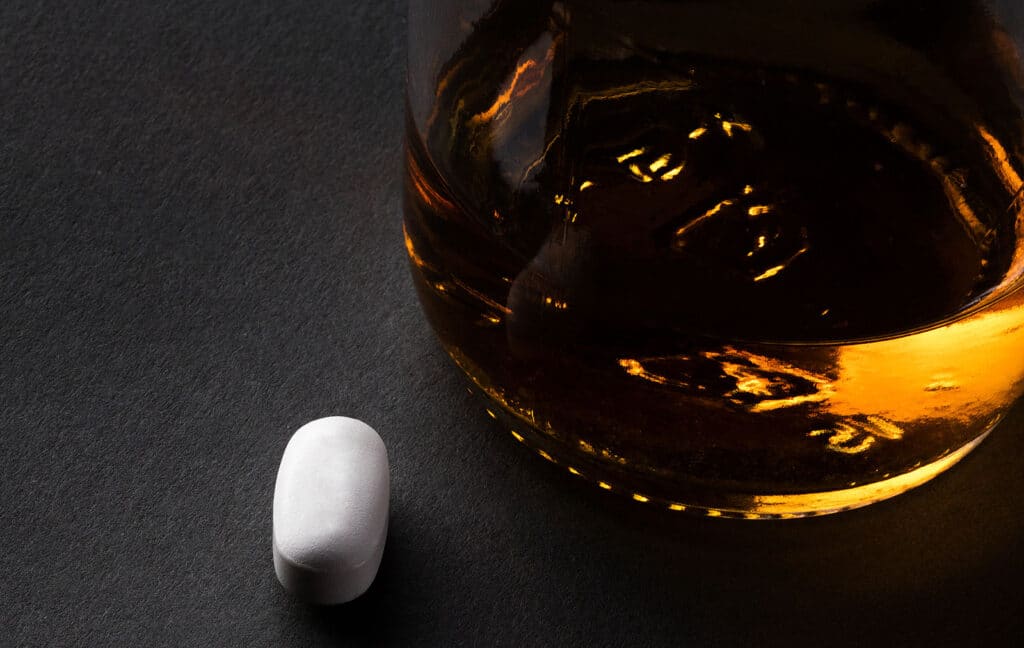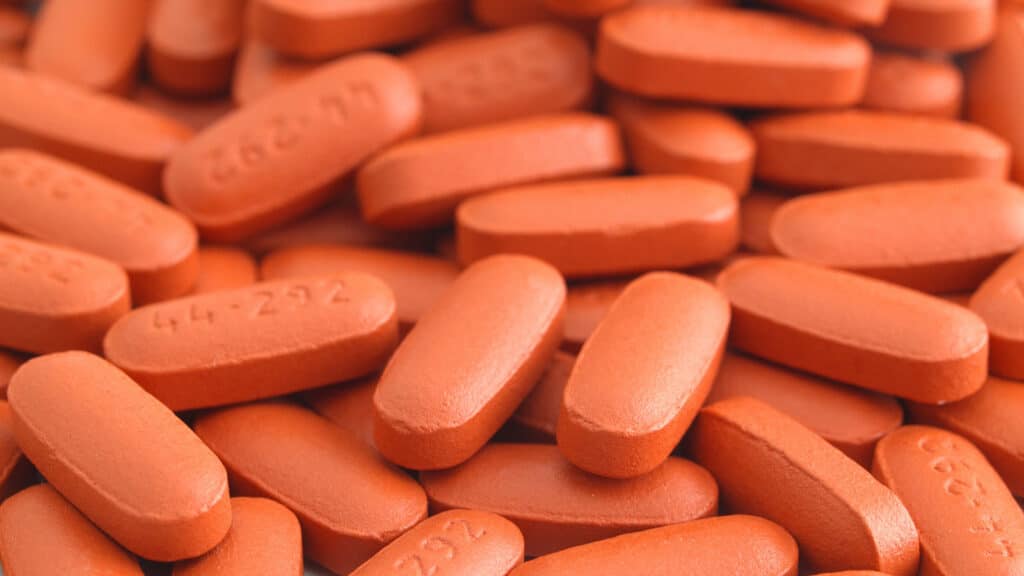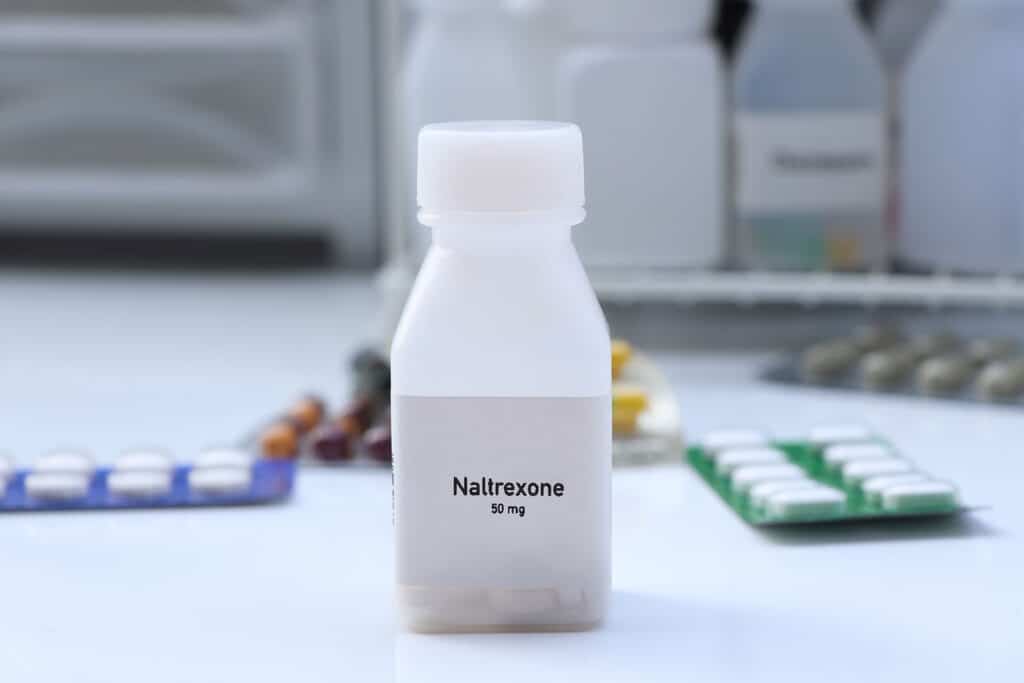Ibuprofen is commonly used for pain relief, anti-inflammation and fever reduction. Because it is so commonly used, it is easy to assume that it is safe to take with other medications as well as with alcohol. However, taking Advil while using alcohol can have serious side effects and may ultimately have long-term consequences. Before combining Advil with alcohol, be aware of how these substances work in your body and the potential outcomes.
Understanding Advil (Ibuprofen)
Advil is a popular NSAID, or non-steroidal anti-inflammatory drug. In addition to reducing swelling, it offers pain relief and can temporarily reduce fevers. You may also know this medication as ibuprofen, Motrin and Midol. While it is readily available as an over-the-counter medication, higher doses are available only with a doctor’s prescription. Over-the-counter and prescription medications like Advil should only be taken at the recommended dosages on the packaging. At higher levels as well as when taking Advil with alcohol, dangerous side effects can occur.

Advil has numerous possible side effects even when taken alone at the recommended dosage. These include dizziness, nausea, stomach pain and heartburn. To reduce the risk of these side effects and their severity, avoid prolonged use of ibuprofen. Do not use it for more than 10 days without first consulting your doctor.
Risks of Combining Alcohol with Advil
For healthy people, occasionally having one alcoholic beverage while using the recommended dosage of Advil may be relatively safe. This holds true if you take ibuprofen a few hours after drinking to manage hangover symptoms. However, when a moderate or large amount of alcohol is consumed with Advil, the potential risk for serious symptoms increases dramatically. In addition, those you have kidney disease or other chronic conditions may also be at a higher risk for having serious side effects.
Both Advil and alcohol taken on their own can increase the risk of ulcers and gastrointestinal bleeding. When taking these substances together, the risk increases considerably. Some people are more susceptible to these issues, including men and older adults. Some of the symptoms of gastrointestinal bleeding are blood in the toilet, tarry or black stools, bright red vomit, stomach pain and sudden nausea.
In addition to gastrointestinal bleeding, Advil taken with alcohol can increase the risk of kidney damage and worsen symptoms of those who already have kidney disease. Symptoms include shortness of breath, nausea, fatigue, decreased urine output and ankle and leg swelling.

Liver damage can also occur, and this damage may be more severe if the health of your liver is already impaired. Symptoms of liver damage are nausea and vomiting, yellowing skin and abdominal pain and swelling.
Taking ibuprofen alone at high doses can be hard on your heart. The effects are magnified when Advil and alcohol are used together. Heart problems related to using these substances together are coronary artery disease, heart failure, high blood pressure, stroke and heart attack.
One of the reasons for these risks of taking alcohol and Advil together relates to how they are metabolized in the body. Both substances are metabolized in the liver, so the liver must work overtime to clear the body of them. In addition, alcohol taken alone is hard on the heart, pancreas, liver, immune system and brain. When combined, these substances yield increased effects. Be aware that there are no over-the-counter or prescription pain medications that are completely safe to take with alcoholic beverages.
Signs of a Serious Complication
The impacts of alcohol and ibuprofen use may not be immediately noticed, but some people will experience severe symptoms that require emergency medical treatment. For example, they may have pale or bluish skin and seizures. They may also show signs of severe confusion and have trouble maintaining consciousness. A slow heart rate and slow, irregular breathing can also occur.
Safe Practices for Taking Advil and Drinking Alcohol
There is no absolute safe limit for combining Advil with alcohol. This combination can have potentially serious complications on anyone, regardless of their health status, age or gender. However, some people are more likely to have complications, including older adults, men and those with underlying health conditions. In addition, complications are more likely when consuming large quantities of alcohol with large doses of Advil. They are also more likely when you regularly use either of these substances.
Generally, it is safer to take Advil when 10 hours or more have passed since you last drank alcohol, and vice versa. This may mean that you need to wait a while to take pain medication for a hangover headache. You are also less likely to have serious side effects when you drink only one alcoholic beverage with one dose of Advil.
Considerations Before Taking Advil with Alcohol
Before taking even a single dose of Advil while alcohol is in your system, you should consider your current health status. If you have kidney disease or other significant health problems, you should consult your healthcare provider first. If you have been taking pain medication for an extended period of time or if you are a heavy drinker, avoid mixing these substances. When in doubt, do not use these substances together. It is far better to skip a drink of alcohol than to land in the emergency room or suffer long-term damage to essential body organs.
When to Seek Help
Consulting with your doctor before mixing Advil with alcohol is the best practice. Your doctor can explain the risks to you. If you feel compelled to drink alcohol despite understanding the risks to your health or if you drink heavily on a regular basis, consider seeking treatment. Request a consultation at Recreate Behavioral Health today.










